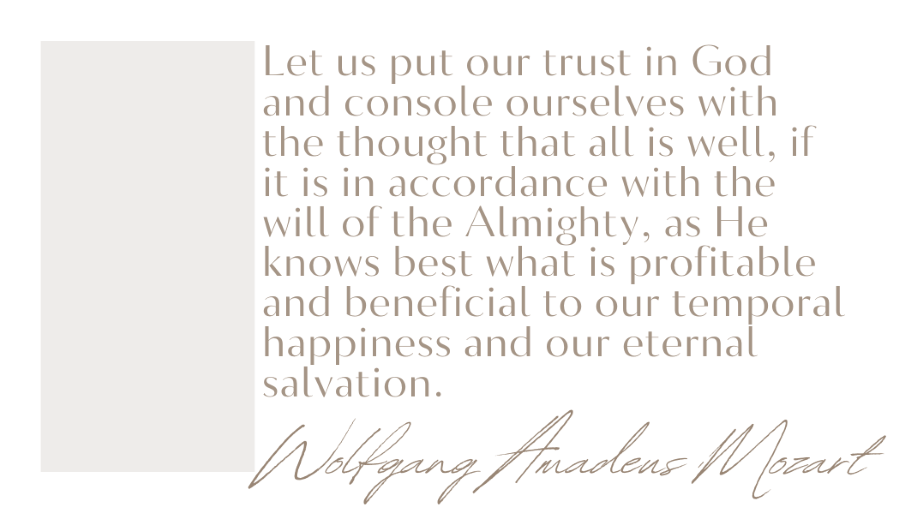What Are The Ten Commandments?
- You shall have no other gods before Me.
- You shall not make idols.
- You shall not take the name of the LORD your God in vain.
- Keep the Sabbath Day holy.
- Honor your father and mother.
- You shall not murder.
- You shall not commit adultery.
- You shall not steal.
- You shall not bear false witness.
- You shall not covet.
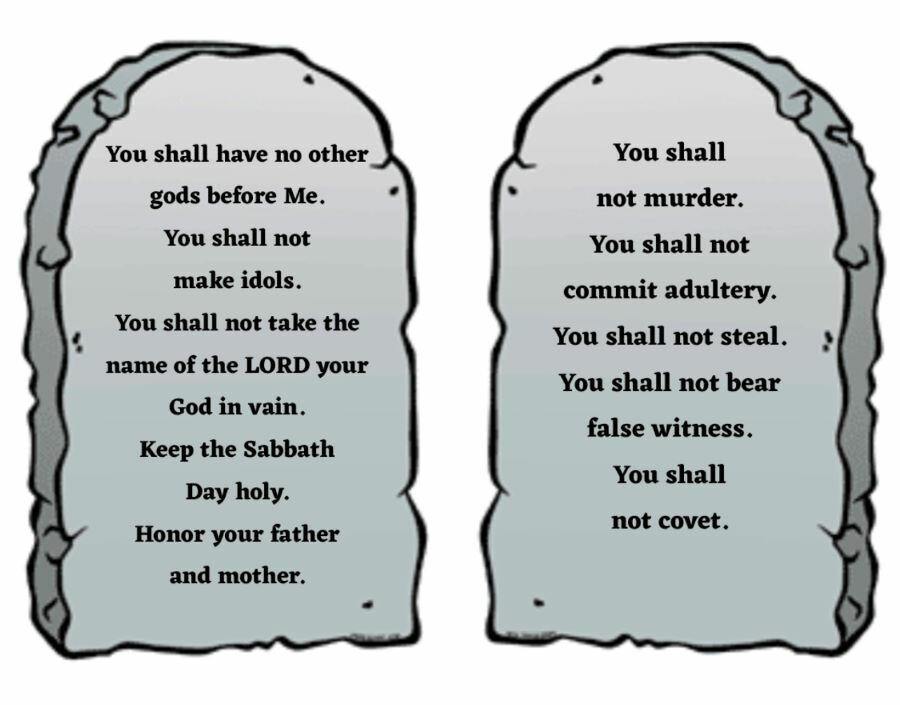
How Did The Ten Commandments Come About?
In a brief summary, Moses received the Ten Commandments from God. Not too long after Moses led the Israelites out of Egypt, the group found themselves at the base of Mount Sinai. They decided to rest here. Moses instructed the Israelites to stay at the foot of the mountain, while he went up to speak with God. Atop the mountain, God revealed Himself to Moses and gave him tablets made of stone that were inscribed with the Ten Commandments. Moses was ordered to share these Commandments with the Israelites.
The Ten Commandments are referenced throughout the Bible, the Old Testament, and New Testament alike. However, The Book of Exodus and The Book of Deuteronomy both provide the entire account of Moses obtaining them. We’ve included the chapters in both Exodus and Deuteronomy at the bottom of the post that you’re welcome to check out.
Why Should You Abide By The Ten Commandments?
God gave us the Ten Commandments as a set of laws to uphold. They are simplified decrees that adhere to moral and spiritual health. When we strive to live the law of the Lord, we are keeping Him at the center of our lives. By following the Ten Commandments, we are living our lives on the path of righteousness.
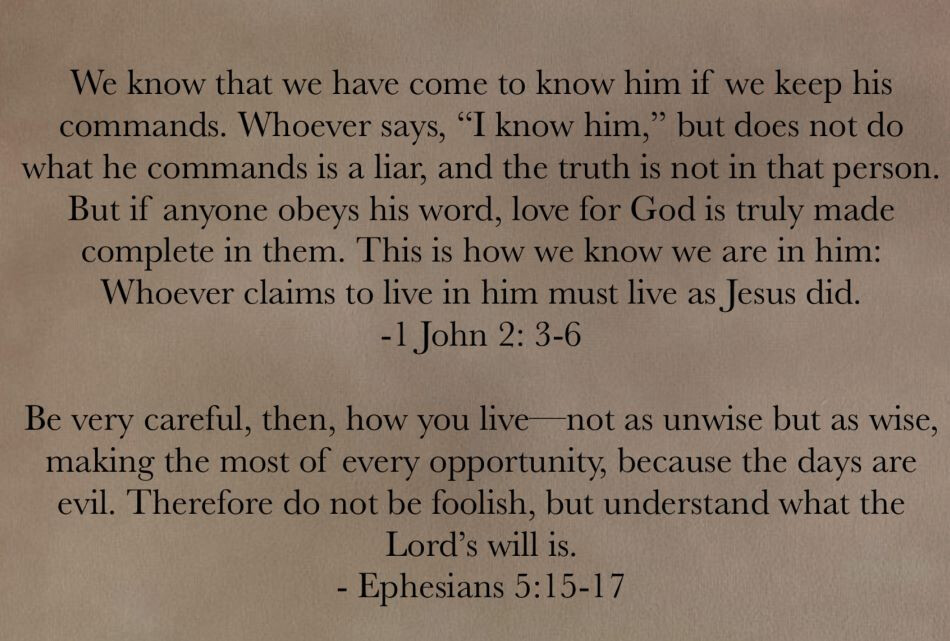
Is There Any Importance In The Order?
There is nothing in the Bible stating that the order of the Ten Commandments has any deeper meaning. Quite the opposite actually. Throughout the Bible, the Commandments are referenced in different orders.
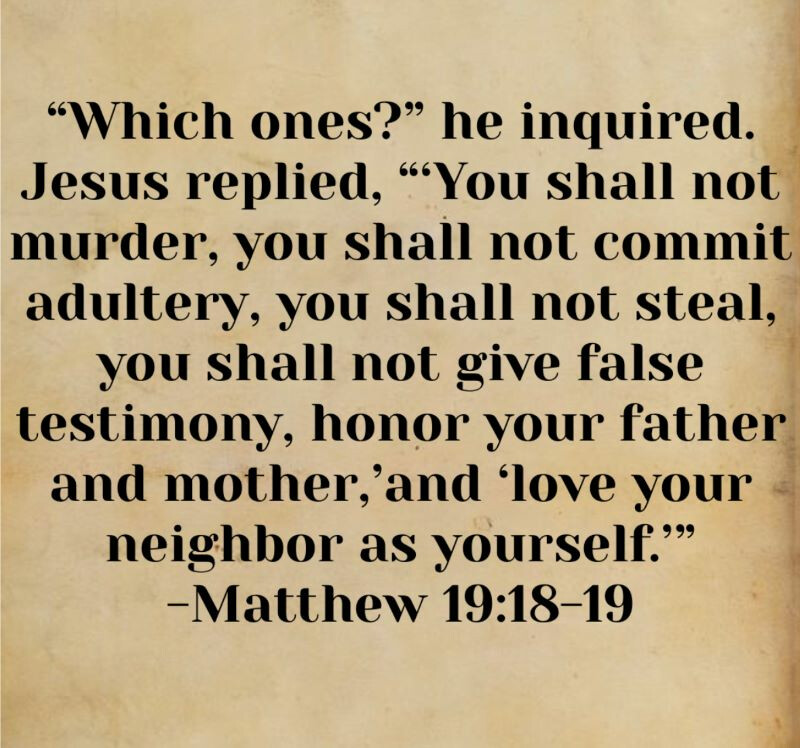
Let's Take a Look at What Each of the Commandments Mean
First Commandment- You Shall Have No Other Gods Before Me:
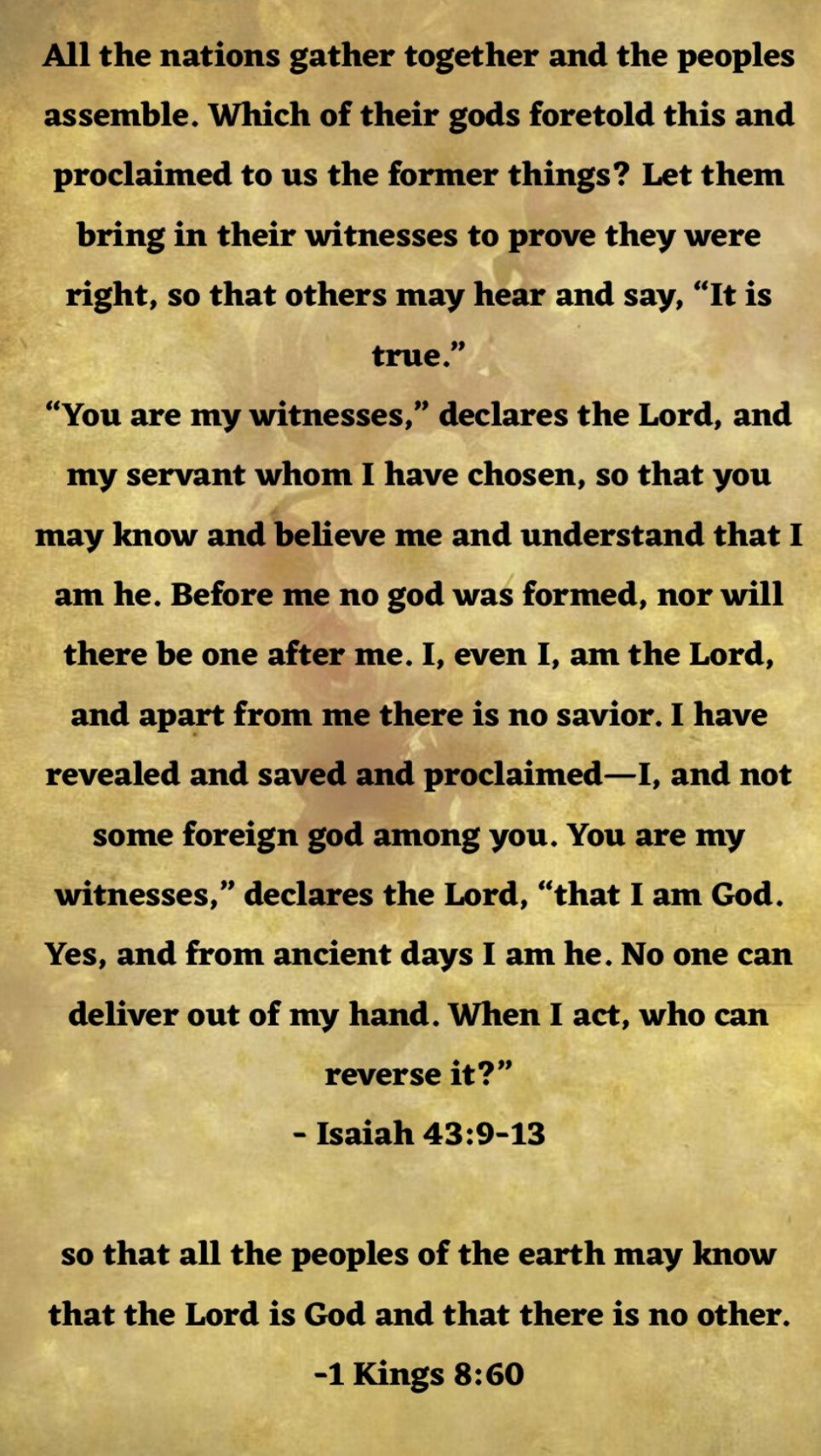
We need to acknowledge and accept that there is only one God, and He is the Creator of all things. Our hearts need to swell with this great knowledge and keep Him first in our lives. There are no other gods; we mustn't disrespect Him by entertaining the possibility.
Second Commandment- You Shall Not Make Idols:

Akin to the first Commandment, the second Commandment tells us to worship only Him and to steer clear of idols. The word idols has an assortment of definitions that apply to this Commandment. Foremost, idols take on the definition of false gods. There are no other gods, it is only He who we must honor. The second Commandment also means we must not craft any objects, visuals, or pieces in His image, for that handiwork becomes an idol. We need to remember that God is almighty and we will never be able to replicate something so great and divine. Additionally, if you are not careful, anything can be categorized as idols: money, celebrities, careers, a partner, material items, etc. If something/someone is placed above God, it is an idol.
Third Commandment- You Shall Not Take The Name Of The LORD Your God In Vain:
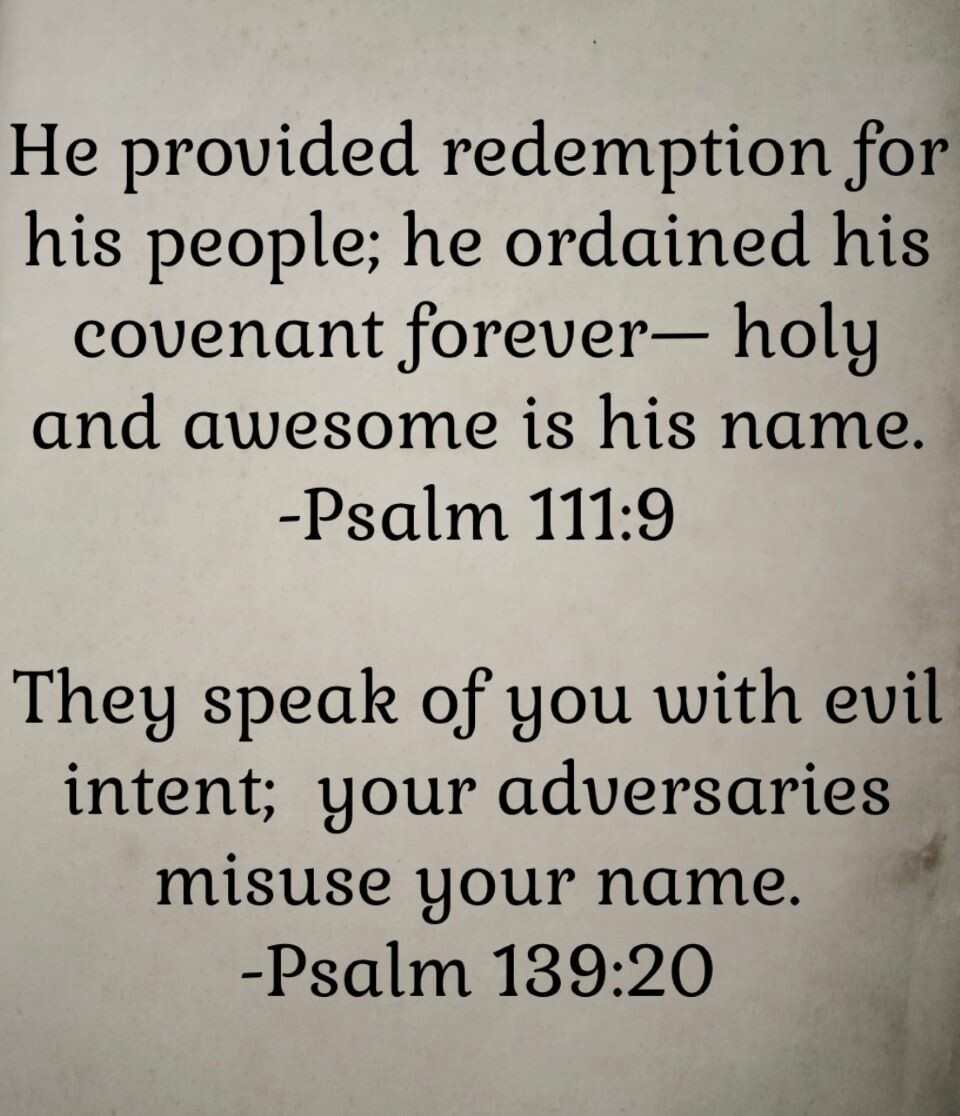
By using the Lord’s name in Vain, we are practicing defamation. We are slandering His good name, tarnishing His name with profanity and irreverence.
Psalms 34:3 reads:
Glorify the Lord with me; let us exalt His name together.
We are to exalt His great name and keep His name clean and holy.
Fourth Commandment- Keep The Sabbath Day Holy:
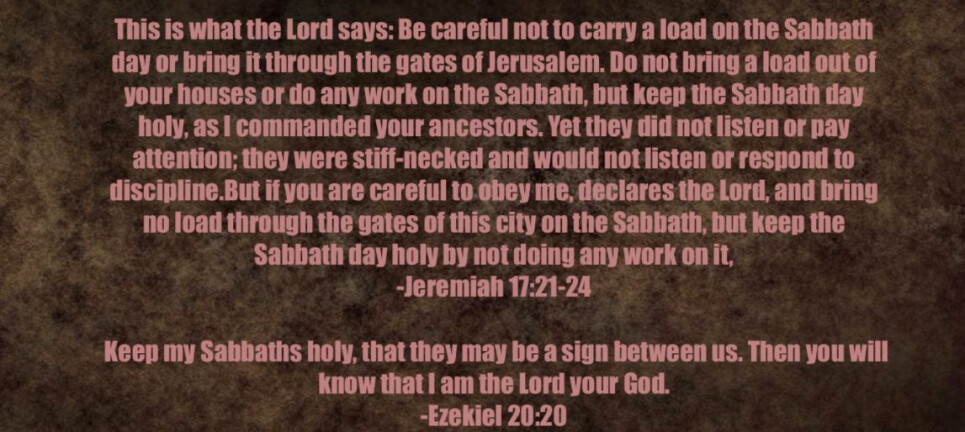
The Sabbath is sanctioned as a day of rest. It is a day we set aside our daily tasks and focus on The Esteemed.
In Mark 2:27, Jesus says:
Then he said to them, “The Sabbath was made for man, not man for the Sabbath.”
This scripture tells us that God gave us the Sabbath as a gift, and we need to respect it. This does not mean we must stay and worship if there is an emergency we need to attend to.
In Matthew 12:10- 12 we learn if there is an emergency, we can take the actions to solve it, even if it is the Sabbath:
and a man with a shriveled hand was there. Looking for a reason to bring charges against Jesus, they asked him, “Is it lawful to heal on the Sabbath?” He said to them, “If any of you has a sheep and it falls into a pit on the Sabbath, will you not take hold of it and lift it out? How much more valuable is a person than a sheep! Therefore it is lawful to do good on the Sabbath.”
Our Father blessed us with this day of rest. We should take advantage of this gift and use the day to show our gratitude for Him.
Fifth Commandment- Honor Your Father And Mother:
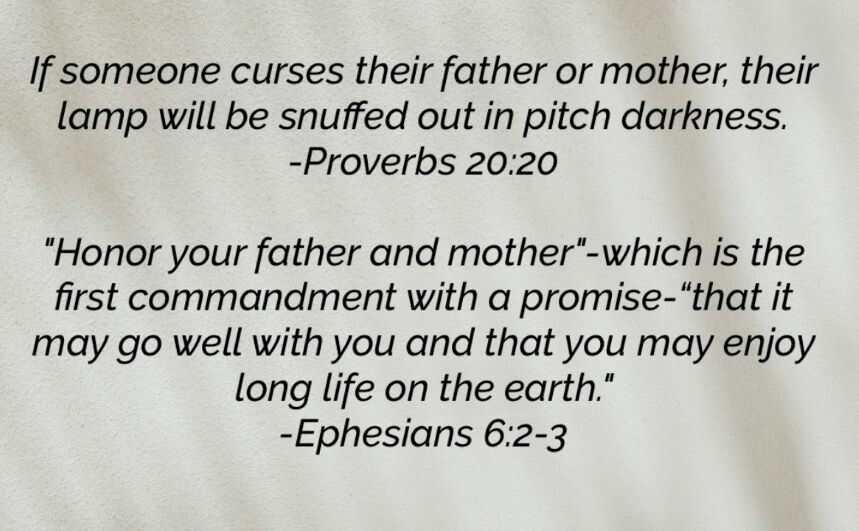
The fifth Commandment is twofold. The first half being we are required to honor our Father in Heaven. We can find countless scriptures supporting this. The second half is about our responsibility to honor and serve our earthly parents. It is our duty to abide by our parents, obey their teachings, and respect their rules and decisions.
Sixth Commandment- You Shall Not Murder:
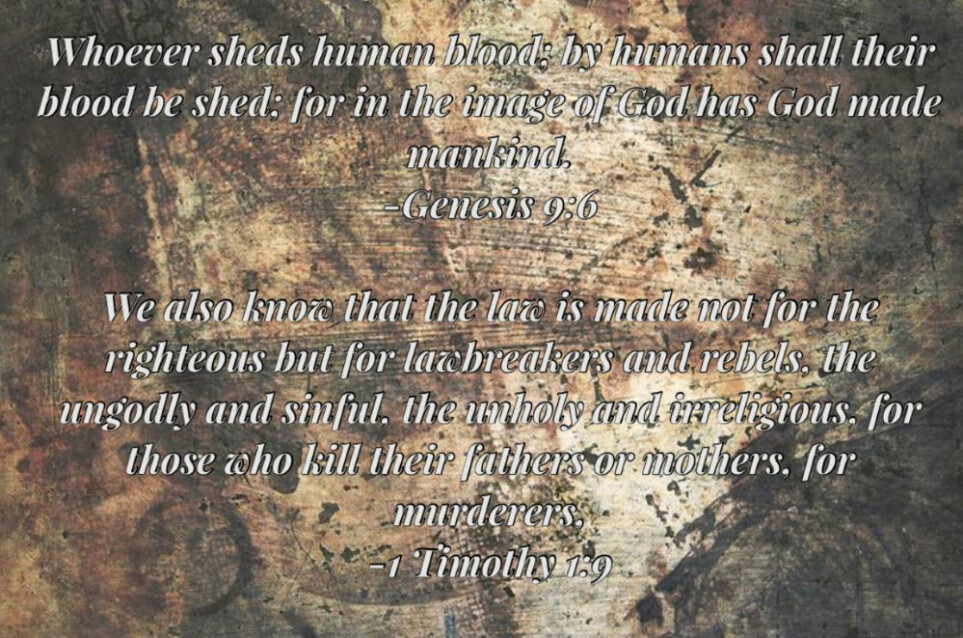
This Commandment seems a little obvious, murder is wrong. Taking someone’s life is a sin. But let’s delve a little deeper.
Matthew 5: 21-22 reads:
You have heard that it was said to the people long ago, ‘You shall not murder, and anyone who murders will be subject to judgment.’ But I tell you that anyone who is angry with a brother or sister will be subject to judgment. Again, anyone who says to a brother or sister, ‘Raca,’ is answerable to the court. And anyone who says, ‘You fool!’ will be in danger of the fire of hell.
Likewise, 1 John 3:15 states:
Anyone who hates a brother or sister is a murderer, and you know that no murderer has eternal life residing in him.
What do these scriptures mean? What is the underlying message? These verses teach us that murder doesn’t only mean to kill or take a life. They teach us that murder in the Bible is parallel to hate.
This Commandment instructs us to banish hate from our hearts, and to avoid abuse, whether it be physical, mental, or verbal. It expresses the underlying need to love.
Seventh Commandment- You Shall Not Commit Adultery:

Marriage is a sacred commitment. The acts that happen within a marriage are revered and meant to stay within the marriage. God wants us to uphold our marriage commitment, respect our spouse, and keep our relationships clean. It is vital we do not take our marriage commitment lightly.
Eighth Commandment- You Shall Not Steal:
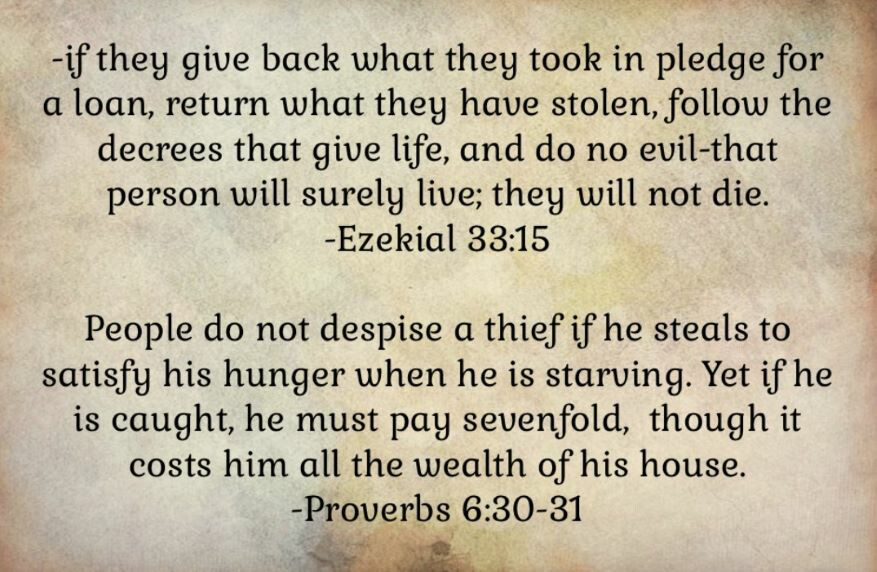
In some instances, we might justify stealing as a means to meet our needs. Some may steal just to do it, get a thrill, or fulfill a want. No matter the reason behind the act- stealing is wrong. It shows disrespect toward another.
Stealing also breaks a multitude of Commandments: we are dishonest in our actions, coveting another, perhaps idolizing whatever was stolen, and committing adultery if the stolen is someone else’s spouse.
Ninth Commandment- You Shall Not Bear False Witness:

You need to keep honest in all of your words and doings. When you deceive, you are not respecting yourself or others. On top of that, God is immersed in truth. His actions, His promises, His words are imbued with honesty.
We learn in John 8:44, that the adversary, Satan, is known as the father of lies. The verse reads:
You belong to your father, the devil, and you want to carry out your father’s desires. He was a murderer from the beginning, not holding to the truth, for there is no truth in him. When he lies, he speaks his native language, for he is a liar and the father of lies.
Lying and deceit are Satan’s most powerful weapon. When we lie, we are working hand-in-hand with Satan, doing the opposite of God. God wants us to follow His path, not the path of evil.
Tenth Commandment- You Shall Not Covet:
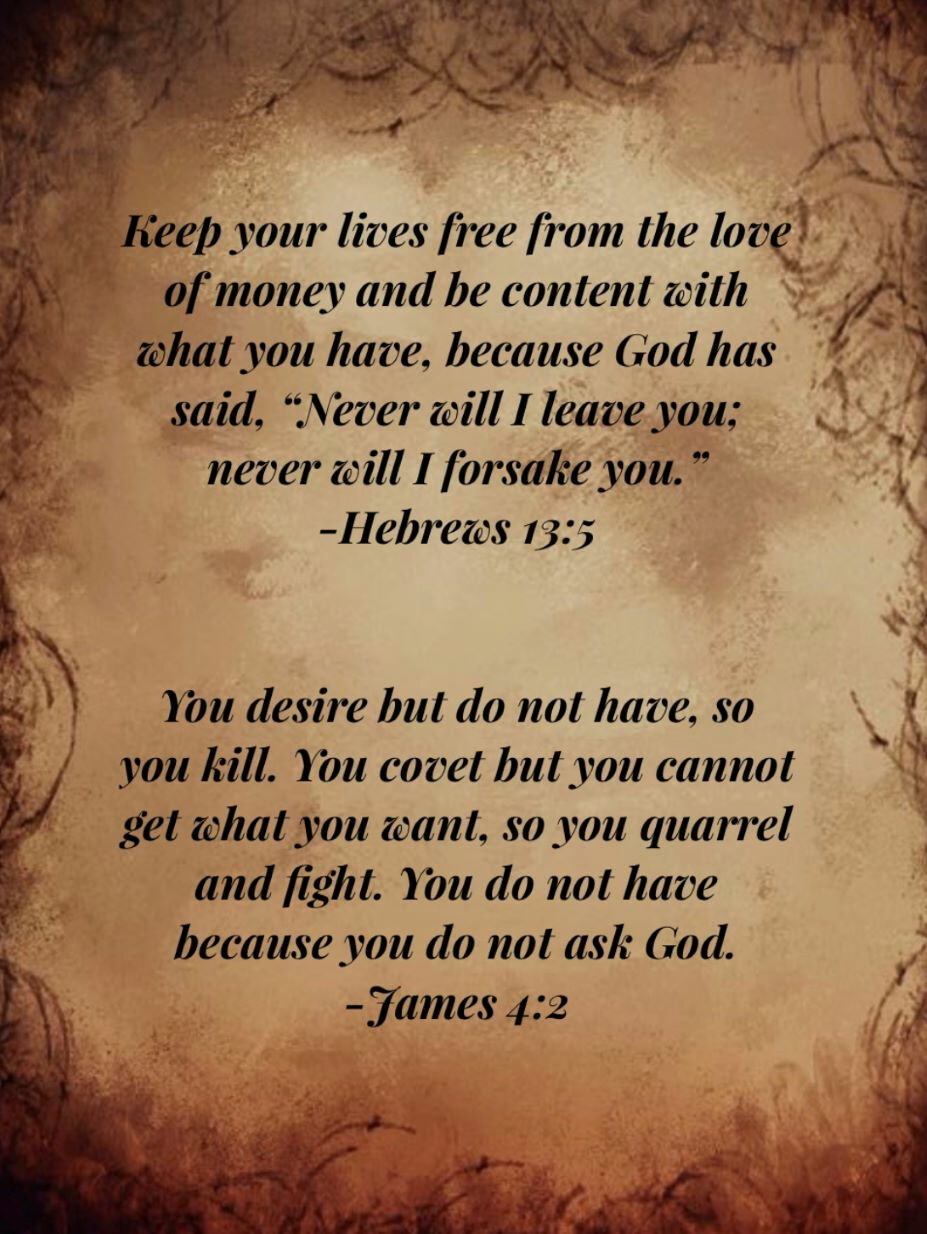
What does it mean to covet? Common synonyms of covet are, desire, want, and envy, just to name a few. Oxford defines covet as: yearn to possess or have (something). So why would covet be included in the Ten Commandments? When we allow ourselves to covet, we are actively showing discontent and ungratefulness in our own lives. This leaves us feeling dissatisfied and begrudging. God doesn’t want us to harbor feelings of ill-will. These feelings are contradictory to those He wants us to bear. Instead, we need to feel appreciative of what we have, and what He has given to us. We must show our thanks to the Lord for all that he has blessed us with.
What Can We Learn From The Commandments? What Can We Expect From Following Them?

The Ten Commandments essentially define sin. They were given to us by God in order for us to live a righteous life. When we incorporate them into our daily lives, we are choosing to walk the right path that enables us to return to Him. By following them, we are denying Satan access to our hearts and opening the door for God to grant us blessings.
What If We Break A Commandment?

God knows we are imperfect. That is why He sent His son to be sacrificed for us: to clean away our sins. If we repent, we will be forgiven. He loves us and doesn’t want us to hurt or suffer. He designed a way for us to clean our slates when we slip up.
To Conclude
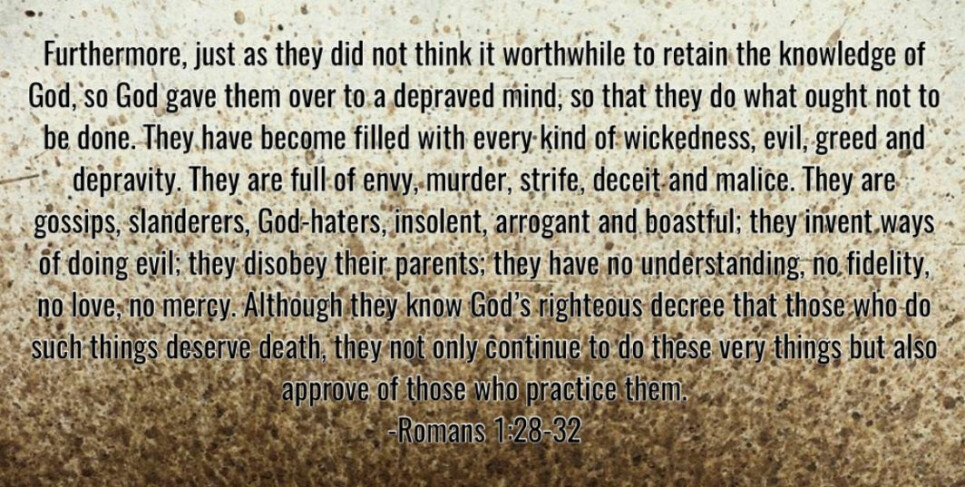
Many of the Commandments go hand-in-hand with each other. Their messages are interwoven, united together as God’s will. God showed His love for us when He presented us with the Ten Commandments. He provided us with the laws we need to follow in order to receive everlasting life with Him. He blessed us with a fail-safe in the form of repentance. Heed His warning. Commit yourself to follow His law. If we do our part, He will do his.
-Torrance Church of Christ
Chapters From Exodus and Deuteronomy
In Exodus chapter 20, we learn the story of Moses receiving the Ten Commandments. It reads:
1 And God spoke all these words:
2 “I am the Lord your God, who brought you out of Egypt, out of the land of slavery. 3 “You shall have no other gods before me. 4 “You shall not make for yourself an image in the form of anything in heaven above or on the earth beneath or in the waters below. 5 You shall not bow down to them or worship them; for I, the Lord your God, am a jealous God, punishing the children for the sin of the parents to the third and fourth generation of those who hate me, 6 but showing love to a thousand generations of those who love me and keep my commandments. 7 “You shall not misuse the name of the Lord your God, for the Lord will not hold anyone guiltless who misuses his name. 8 “Remember the Sabbath day by keeping it holy. 9 Six days you shall labor and do all your work, 10 but the seventh day is a sabbath to the Lord your God. On it you shall not do any work, neither you, nor your son or daughter, nor your male or female servant, nor your animals, nor any foreigner residing in your towns. 11 For in six days the Lord made the heavens and the earth, the sea, and all that is in them, but he rested on the seventh day. Therefore the Lord blessed the Sabbath day and made it holy. 12 “Honor your father and your mother, so that you may live long in the land the Lord your God is giving you. 13 “You shall not murder. 14 “You shall not commit adultery. 15 “You shall not steal. 16 “You shall not give false testimony against your neighbor. 17 “You shall not covet your neighbor’s house. You shall not covet your neighbor’s wife, or his male or female servant, his ox or donkey, or anything that belongs to your neighbor.” 18 When the people saw the thunder and lightning and heard the trumpet and saw the mountain in smoke, they trembled with fear. They stayed at a distance 19 and said to Moses, “Speak to us yourself and we will listen. But do not have God speak to us or we will die.” 20 Moses said to the people, “Do not be afraid. God has come to test you, so that the fear of God will be with you to keep you from sinning.” 21 The people remained at a distance, while Moses approached the thick darkness where God was. 22 Then the Lord said to Moses, “Tell the Israelites this: ‘You have seen for yourselves that I have spoken to you from heaven: 23 Do not make any gods to be alongside me; do not make for yourselves gods of silver or gods of gold. 24 “‘Make an altar of earth for me and sacrifice on it your burnt offerings and fellowship offerings, your sheep and goats and your cattle. Wherever I cause my name to be honored, I will come to you and bless you. 25 If you make an altar of stones for me, do not build it with dressed stones, for you will defile it if you use a tool on it. 26 And do not go up to my altar on steps, or your private parts may be exposed.’
We see this again in Deuteronomy chapter 5:
1 Moses summoned all Israel and said:
Hear, Israel, the decrees and laws I declare in your hearing today. Learn them and be sure to follow them. 2 The Lord our God made a covenant with us at Horeb. 3 It was not with our ancestors that the Lord made this covenant, but with us, with all of us who are alive here today. 4 The Lord spoke to you face to face out of the fire on the mountain. 5 (At that time I stood between the Lord and you to declare to you the word of the Lord, because you were afraid of the fire and did not go up the mountain.) And he said: 6 “I am the Lord your God, who brought you out of Egypt, out of the land of slavery. 7 “You shall have no other gods before me. 8 “You shall not make for yourself an image in the form of anything in heaven above or on the earth beneath or in the waters below. 9 You shall not bow down to them or worship them; for I, the Lord your God, am a jealous God, punishing the children for the sin of the parents to the third and fourth generation of those who hate me, 10 but showing love to a thousand generations of those who love me and keep my commandments. 11 “You shall not misuse the name of the Lord your God, for the Lord will not hold anyone guiltless who misuses his name. 12 “Observe the Sabbath day by keeping it holy, as the Lord your God has commanded you. 13 Six days you shall labor and do all your work, 14 but the seventh day is a sabbath to the Lord your God. On it you shall not do any work, neither you, nor your son or daughter, nor your male or female servant, nor your ox, your donkey or any of your animals, nor any foreigner residing in your towns, so that your male and female servants may rest, as you do. 15 Remember that you were slaves in Egypt and that the Lord your God brought you out of there with a mighty hand and an outstretched arm. Therefore the Lord your God has commanded you to observe the Sabbath day. 16 “Honor your father and your mother, as the Lord your God has commanded you, so that you may live long and that it may go well with you in the land the Lord your God is giving you. 17 “You shall not murder. 18 “You shall not commit adultery. 19 “You shall not steal. 20 “You shall not give false testimony against your neighbor. 21 “You shall not covet your neighbor’s wife. You shall not set your desire on your neighbor’s house or land, his male or female servant, his ox or donkey, or anything that belongs to your neighbor.” 22 These are the commandments the Lord proclaimed in a loud voice to your whole assembly there on the mountain from out of the fire, the cloud and the deep darkness; and he added nothing more. Then he wrote them on two stone tablets and gave them to me. 23 When you heard the voice out of the darkness, while the mountain was ablaze with fire, all the leaders of your tribes and your elders came to me. 24 And you said, “The Lord our God has shown us his glory and his majesty, and we have heard his voice from the fire. Today we have seen that a person can live even if God speaks with them. 25 But now, why should we die? This great fire will consume us, and we will die if we hear the voice of the Lord our God any longer. 26 For what mortal has ever heard the voice of the living God speaking out of fire, as we have, and survived? 27 Go near and listen to all that the Lord our God says. Then tell us whatever the Lord our God tells you. We will listen and obey.” 28 The Lord heard you when you spoke to me, and the Lord said to me, “I have heard what this people said to you. Everything they said was good. 29 Oh, that their hearts would be inclined to fear me and keep all my commands always, so that it might go well with them and their children forever! 30 “Go, tell them to return to their tents. 31 But you stay here with me so that I may give you all the commands, decrees and laws you are to teach them to follow in the land I am giving them to possess.” 32 So be careful to do what the Lord your God has commanded you; do not turn aside to the right or to the left. 33 Walk in obedience to all that the Lord your God has commanded you, so that you may live and prosper and prolong your days in the land that you will possess.









